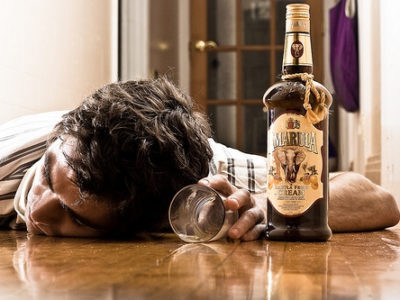An atmosphere all too common among college campuses will return as classes are back in session. Such an atmosphere consists of lazy days and drunken nights. Most believe it comes with the territory of being a college student.
However, this is not the case for student-athletes.
In order for NCAA teams to show the utmost dedication to their sports, they must commit themselves to a strict dry season where nobody drinks alcohol. The idea is to ensure the athletes perform to the best of their capabilities, and normally the results justify the lack of social outings.
There’s more to their training than just not drinking, of course. Two-a-days and early-morning practices are the norm throughout the season. Try participating in such physically demanding situation when you’re hung over? Won’t happen.
While intense training is common for any collegiate athlete, it’s the dry season that takes it to the next level. It shouldn’t come as a surprise that this extra dedication ensures student-athletes perform to the best of their abilities.
The extra level of dedication separates them, as does the success it brings.
Kaeley McEvoy is a sophomore soccer player for Gettysburg University. McEvoy recently completed her season and a version of a dry season. “My school doesn't do a full dry season because we are [Division 3.] But we do a 48-hour rule, which means you can't go out two nights [in a row] before a game and 24 hours before a practice,” she said.
All schools are different with the dry season rule. Gettysburg may be more lenient than other colleges. For instance, Pacific Lutheran University, a Division-1 competitor, does not allow athletes to consume alcohol at all. At the beginning of each season, every athlete must attend a conference to discuss the implication of drinking alcohol.
The PLU student-athlete handbook states “regardless of age, a student – athletes will be held accountable for alcohol-related policy violations in which he/she is involved. In such cases, the student-athlete is subject to the University, Athletic Department, and/or team disciplinary actions.”
Despite the differences, each school has the same goal: the betterment of the individual athlete and the team as a whole.
The rules may diminish the college nightlife, but for some, like McEvoy, it’s worth it. “I personally do not mind the dry season rules because it honestly brings the team closer together,” she said. “When you all have to sacrifice for a common goal it brings you closer.”
Instead, McEvoy says, the team usually rents a movie or just hangs out at an older captain’s house.
“Some of my most fun nights have been staying in with my teammates honestly,” McEvoy said. “Even if it means listening to high heels walk around the dorm while you do your laundry, the reward from playing sports is more than worth the sacrifice.”




















